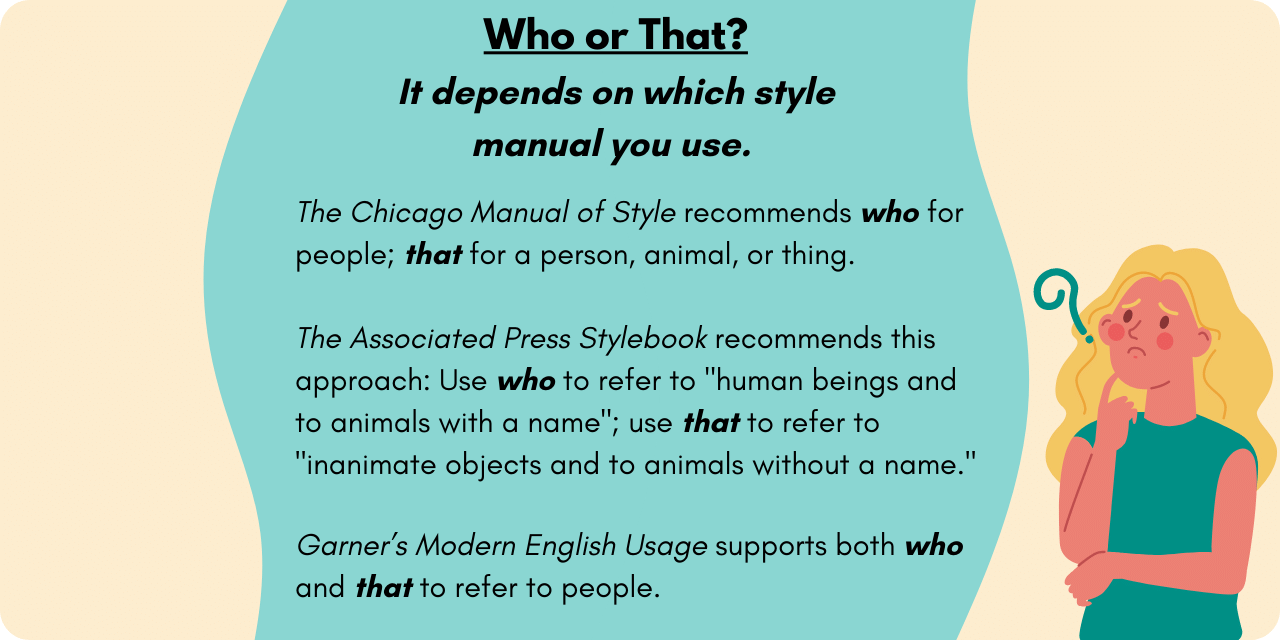Is it acceptable to use both who and that to refer to people, or is only who correct?
Before I share my response, consider the question. Which word would you use in the sentences below?
- We need to hire someone who/that speaks Japanese.
- A person who/that doesn’t rely on public transportation may not support transit subsidies.
- I’m looking for the man who/that turned in the tickets.
Did you choose who or that? Or did your answer vary depending on the sentence?
Normally I would give you my answers now, but the answer for every example is this: It depends on which style manual you use.

The Chicago Manual of Style recommends who for people; that for a person, animal, or thing.
Chicago’s examples:
- Where is the man who spoke?
- Any building that is taller must be outside the state.
The Associated Press Stylebook recommends this approach: Use who to refer to “human beings and to animals with a name”; use that to refer to “inanimate objects and to animals without a name.”
Examples:
- We need a designer who understands us.
- It was Pixie who dug up the glove.
- The raccoon that startled me scared the neighbors too.
Garner’s Modern English Usage supports both who and that to refer to people. Under the entry for who/whom, it says, “Who is the relative pronoun for human beings.” But under the entry for that, Garner defends its use: “‘People that’ has always been good English, and it’s a silly fetish to insist that who is the only relative pronoun that can refer to humans.”
Garner’s examples:
- the people that were present
- the people who were present
Garner adds that editors tend to prefer who.
Microsoft Manual of Style takes an approach similar to Garner’s, saying, “Although there is no linguistic basis for not using that to refer to people . . . it is considered more polite to use who instead of that in references to people.”
Microsoft‘s example:
- For experienced users who want to alter the standard configuration . . .
The Gregg Reference Manual gives the most complex advice after noting that both who and that are used to refer to people. Gregg states: “Select who when the individual person or the individuality of a group is meant, that when a class or type is meant.”
Example referring to an individual person:
- She is the only member who welcomed me.
Example referring to a class or type:
- A candidate that has plenty of money can stay in the race longer.
Being an animal lover with an English spring spaniel whose name is Katy, I’m going to follow The AP Stylebook and use who for all references to people and animals with names.
Which style do you follow?






